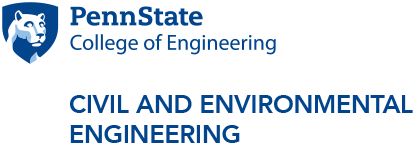CEE Seminar Series: You need to learn more about your daily energy use and carbon emissions to better understand the challenges of slowing climate change
The recording for this seminar is now available.
Abstract: Addressing climate change may be the greatest environmental challenge of the century, affecting everyone in the world, but most of us have only a limited understanding of how our own personal activities translate into energy consumption and CO2 emissions. Part of the challenge is that energy is expressed in so many different units that it is difficult to add them up to determine energy use for our daily lives. For example, food is reported in energy units of Calories or megajoules, driving our car is evaluated by fuel use in gallons or liters, our home electric bills are listed kilowatt hours (kWh), and natural gas heating in CCF or therms. How much energy do you use? As a scientist or engineer, you could calculate your energy use in one specific energy unit, but how would you interpret the results? For example, the US annually uses about 100 quads of energy but how does that compare to your own energy use? In this talk, Dr. Logan introduces the concept of the energy unit D and a CO2 emission unit of C and explore daily energy use and how these activities lead to CO2 emissions. If we define 1 D as the energy in food that you eat every day (2000 Calories), then all energy use can be compared to this number in units of D. Some comparisons will surprise you. For example, would you predict a car on average in the US uses more energy than a house? For CO2 emissions, each person emits about 2 lb/d (defined as 1 C) due to the food we eat. Therefore, we can compare CO2 emitted from a gallon of gasoline or electricity used for our home relative to our personal minimum (CO2 emissions from the food we eat). After this lecture, it is hoped that you will view your lifestyles and energy choices with greater clarity as that is needed for us all to address energy use and CO2 emissions, and therefore climate change.
Biography: Professor Bruce E. Logan is an Evan Pugh University Professor in Engineering, the Stan & Flora Kappe Professor of Environmental Engineering, and Director of the Engineering Energy & Environmental Institute at Penn State. His current research efforts are in renewable energy production and the development of an energy sustainable water infrastructure. Dr. Logan has mentored over 130 graduate students and postdocs and hosted over 40 international visitors to his laboratory. He is the author or co-author of several books and over 500 refereed publications, and he has over 90,0000 citations and a h-index of 148 according to Google scholar.
Logan is a member of the US National Academy of Engineering, a foreign member of the Chinese Academy of Engineering, and a fellow of the American Association for the Advancement of Science, the International Water Association, the Water Environment Federation, and the Association of Environmental Engineering & Science Professors. Logan is a visiting professor at several universities including the Harbin Institute of Technology, Tsinghua University, Dalian University of Technology—all three in China—with ties to several other universities in Saudi Arabia, the UK, and Belgium. He received his doctoral degree in 1986 from the University of California, Berkeley. Prior to joining Penn State in 1997, he was at the University of Arizona in Tucson.
Additional Information:
Lecture begins at 4 p.m. and will be followed by a question and answer session. Event concludes at 5:30 p.m. Registration is required.
Event Contact: Tim Schley




